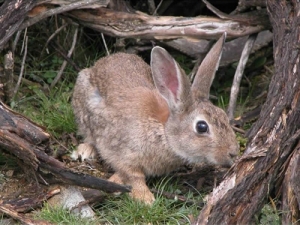A new strain of virus could help New Zealand farmers slash rabbit numbers by up to 30%, says Landcare Research.
The virus, called RHDV1-K5, is a Korean strain of the lethal calicivirus already present in New Zealand that causes rabbit haemorrhagic disease (RHD).
The New Zealand Rabbit Coordination Group is working with Landcare Research to seek approval to introduce K5 into New Zealand to help control rabbit damage.
Dr Janine Duckworth, leader of Landcare Research's rabbit biocontrol initiative, hopes the virus will be approved for release in New Zealand next autumn. Approval from the Ministry for Primary Industries (MPI) and the Environment Protection Authority (EPA) is required before it can be imported.
Duckworth says K5 had undergone thorough testing in Australia, where it is likely to be approved for release later this year.
"They've been testing lots of different strains and K5 is the one that looks the best. It could reduce rabbit numbers between 25 and 30%," Duckworth says.
But she cautions K5 isn't a "silver bullet" to New Zealand's rabbit problem.
"It's hard to imagine there will ever be a silver bullet to eradicate rabbits," she says.
However, the new strain of virus will provide farmers with a more cost-effective and efficient solution than strains currently in the field today. This should make follow-up with conventional trapping, shooting and dogs more effective and worthwhile too, Duckworth says.
The first strain of RHD, which was illegally imported in 1997, had a "huge impact" but unfortunately an increasing proportion of rabbits have become immune to the disease.
While K5 is expected to make a dent in rabbit numbers, Duckworth did not believe it would make as big an impact as RHD did when it was first introduced. The K5 strain will be a boost to rabbit control by killing some of the immune rabbits.
With a surge in rabbit numbers this year due to the good summer and mild winter she was worried some farmers may take matters into their own hands and try to illegally import the virus in from Australia.
"We don't want an illegal release of the K5 strain. We want to ensure that control agencies use a commercially-prepared product, free from any unwanted viruses and that the timing and method of release is managed to ensure the best possible rabbit control outcomes for farmers."
A vaccine is available for owners of domestic rabbits to protect their pets from the virus.



















